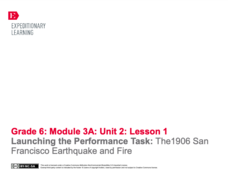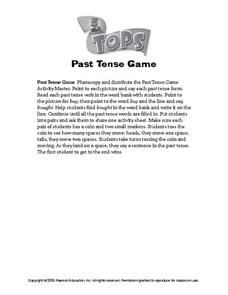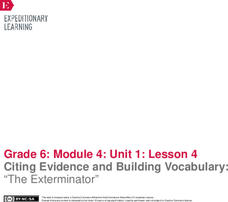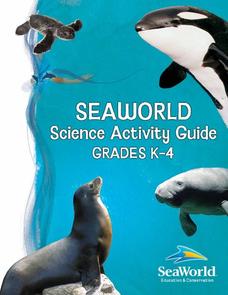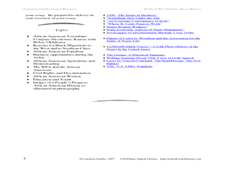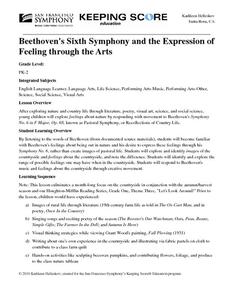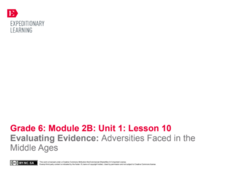Missouri Department of Elementary
Respecting Differences
Differences make the world go 'round. Using a worksheet, scholars identify the similarities and differences that they have with their classmates. Next, pupils engage in a whole-class discussion about respecting differences in others.
EngageNY
Launching the Performance Task: The1906 San Francisco Earthquake and Fire
Picture that! Pupils view photographs of the aftermath of the 1906 San Francisco earthquake and fire, discussing what they know and wonder about each image. Then, scholars watch a short video about the historic event and complete a KWL...
EngageNY
Presenting a Research-Based Claim: Effective Speaking Techniques
Take note. Scholars receive their claim drafts back to revise and write their claims and three pieces of evidence on notecards. They save the notecards to use when the verbally present their claims to the class. At the end, individuals...
Anti-Defamation League
Women's Suffrage, Racism, and Intersectionality
The Nineteenth Amendment granted women the right to vote—as long as they were white. High schoolers read articles and essays about racism in the suffrage movement and consider how intersectionality played a role in the movement. Scholars...
Pearson
Past Tense Game
Teach and taught, learn and learned! Work with your class on the past tense with some guided practice and a game. As a class, match the present tense verbs with their past tense counterparts. Learners then split off into pairs to play...
EngageNY
Deepening Your Research
Give credit where credit is deserved. Scholars discuss what makes a credible source as they take a look at "An Apparel Factory Defies Sweatshop Label, but Can It Thrive?" Learners read the article to look for answers to the research...
EngageNY
Introducing Module 4B: “Water Is Life”
Learners take a gallery walk around the classroom to view various images and quotes. As they walk, they write down what they notice and wonder about what they see. After discussing their notice and wonder notes, they read the...
EngageNY
Reading for Gist: “Middle Ages” Excerpt 2
Read and repeat. Scholars repeat the strategies for digging deeper into text from instructional activity two. This time they focus on Middle Ages Excerpt 2. Learners write unfamiliar words in the word catcher and use details from the...
EngageNY
Citing Evidence and Building Vocabulary: “The Exterminator”
It is an out-of-body experience. Scholars take a look at the sidebars outside the body of the text in The Exterminator. They discuss the purpose of this type of text feature and work to determine the gist. Learners write unfamiliar...
EngageNY
Close Reading and Gathering Evidence from Frightful’s Mountain and “Welcome Back”
Where did the falcons go? Scholars read the article Welcome Back which describes the disappearance of falcons due to the use of pesticides. During a second read, learners annotate the text by marking unfamiliar words and facts about...
Curated OER
The Embodied Presidency
Tenth graders compare and contrast the immigration reform policies of Presidents Reagan and Bush. In this immigration lesson, 10th graders examine primary documents related to each president's policy for immigration reform. Students...
State Library of Ohio
Tuck Everlasting
A great toolbox of ideas for any teacher preparing to teach the novel Tuck Everlasting by Natalie Babbitt, this resource includes a short biography of Natalie Babbitt, several discussion questions that could double as writing prompts,...
Sea World
Seaworld Science Activity
A fun collection of activities about marine life would be a great addition to your elementary science unit. From cute penguins to scary sharks, the unit features crafts, experiments, and basic research projects that will teach your...
Balanced Assessment
Dot Patterns
Use geometric patterns to teach your class how to write functions. The assessment task has scholars consider a pattern of dots to draw the next picture of the pattern. Pupils then analyze the pattern, which helps them develop a function...
Curated OER
The I in You
Students read, write, discuss and appreciate the autobiographical writings and statements of themselves and others. They write their autobiographical response to the question the other writers dealt with.
Curated OER
SeaWorld: Education, Entertainment, or Exploitation?
Students discuss SeaWorld, research marine animal biology, investigate one animal currently collected by SeaWorld, and decide whether they oppose or support SeaWorld's collection policy. Students then gather information relating to...
Curated OER
Understanding Treaties: Students Explore the Lives of Yakama People Before and After Treaties
Students analyze treaties made between the US government and Native American tribes. For this government lesson, students evaluate bias emotionally connect with what was gained and lost during the late 1700's. This is a 3 part lesson...
Curated OER
A New Deal for African Americans
Students consider how New Deal programs impacted African Americans. In this New Deal lesson, students collaborate to research Internet and print sources regarding selected New Deal programs and African Americans. Students write essays...
San Francisco Symphony
Beethoven's Sixth Symphony and the Expression of Feeling through the Arts
Here is an activity used originally to finish off a unit on country life and nature. It requires learners to have a basic understanding of harvest, rural life, and autumn. They'll use what they know to construct dance movements showing...
EngageNY
Setting Purpose for Research: What are Fair Working Conditions?
Life may not be fair but working conditions should be. Scholars research working conditions at Wegmans by studying the company website. They complete a working conditions anchor chart and discuss their findings in a think-pair-share...
EngageNY
Analyzing Text Structure: “Water Is Life” Paragraphs
Water, water everywhere. Readers revisit paragraphs six through nine in the article "Water is Life" to answer text-dependent questions. They then pair up to reread the article focusing on its structure and record their thoughts on...
EngageNY
Evaluating Evidence: Adversities Faced in the Middle Ages
How is that relevant? Scholars gain an understanding of the words relevant and compelling. They then go back to the End of Unit 1 Assessment Prompt: Adversity in the Middle Ages and look at the second bullet that pertains to relevant and...
Agriculture in the Classroom
The Garden Chef
Introduce young chefs to nutritious eating with a cookbook that is divided into sections focusing on one of the five food groups. It includes lessons, activities, and recipes. How wholesome!
Federal Reserve Bank
It's Your Paycheck
Beyond reading and arithmetic, one of the most important skills for graduating seniors to have is fiscal literacy and responsibility. Start them on the right financial track with nine lessons that focus on a variety of important personal...



